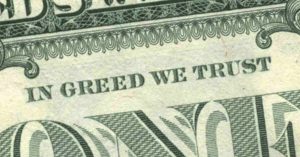The foundations of the public education structure are demarcated upon the ideal of cultivating young minds towards liberty, individuality, and intelligence. The socially accustomed epidemic of attacks upon school funding is invariably rooted within a legacy of greed, unjustifiably caused by a faltering political representation that relies on a tendency to improperly react to economic turmoil. This reactionary liability is not merely a failure to provide for the public education structure in an unsatisfactory manner, yet proves to be a great enemy to individual liberty in preservation of politicians own self-interests. An encroachment upon educational budgets, by what economist Harlan Green deems to be a rampant greed among politicians, threatens the conservation of securing and extending the liberties of individuals. Thus, a new educational and social reform must be conceived.
As proclaimed in my second section of Liberalism and Social Action, “The Crisis in Liberalism”, I identified the solution regarding an emancipation of individuals imposed upon them by the inherited type of social organization was consequently to counter with that of a new social organization. When past procedures struggle past the point of correctable means, a new manner of useful workability and practical ideals and policies are beseeched by the criteria of their merit. A newer truth of determining value in the public education structure and by extension liberalism must be satisfied in order to benefit all.

As projected in Green’s article, political wealth in times of recession prove to be a native impulse to encompass one’s own concern which in turn detriments the economy’s and school’s aptitude to recover. Green promotes a study-based claim that a priority reform of taxes with emphasis upon the public education structure will improve the deficit caused by past solecisms. He goes on to assert that the condition of fiscal probity has been dismissed as a camouflage for a massive transfer of wealth to the wealthiest. As I have stressed before, there is a demand for social organization that should include economic activities but yet should convert them into servants of the development of the higher capacities of individuals.
With panics such as the 2008 bubble collapse and other intrinsic economy crises, money is the first commodity to shrivel up. With these impasses, the allocation of funds for pertinent institutes, like the public education structure, are at risk due to the greed of elite public servants. The external effect of the greed allows a less educated public without adequate preparation for a society in which liberty, individuality, and intelligence can prosper.
